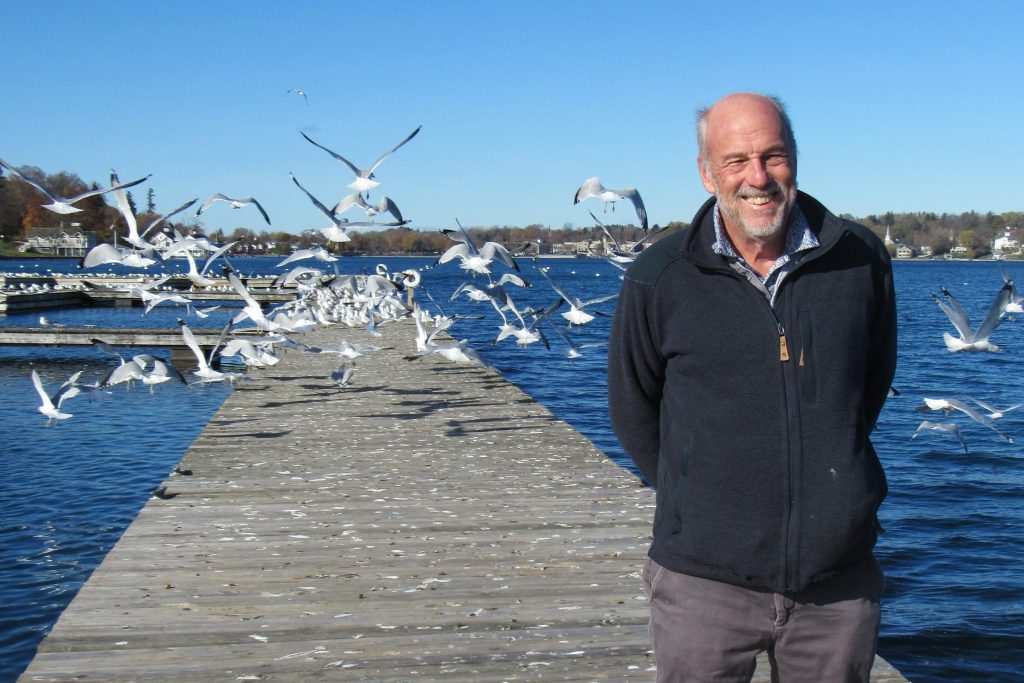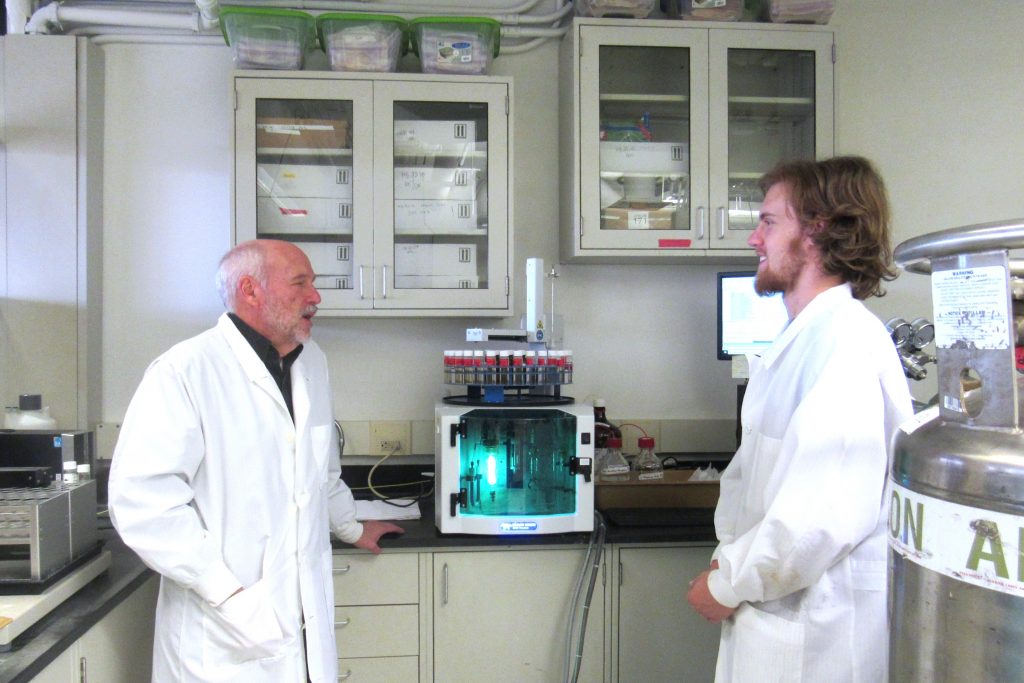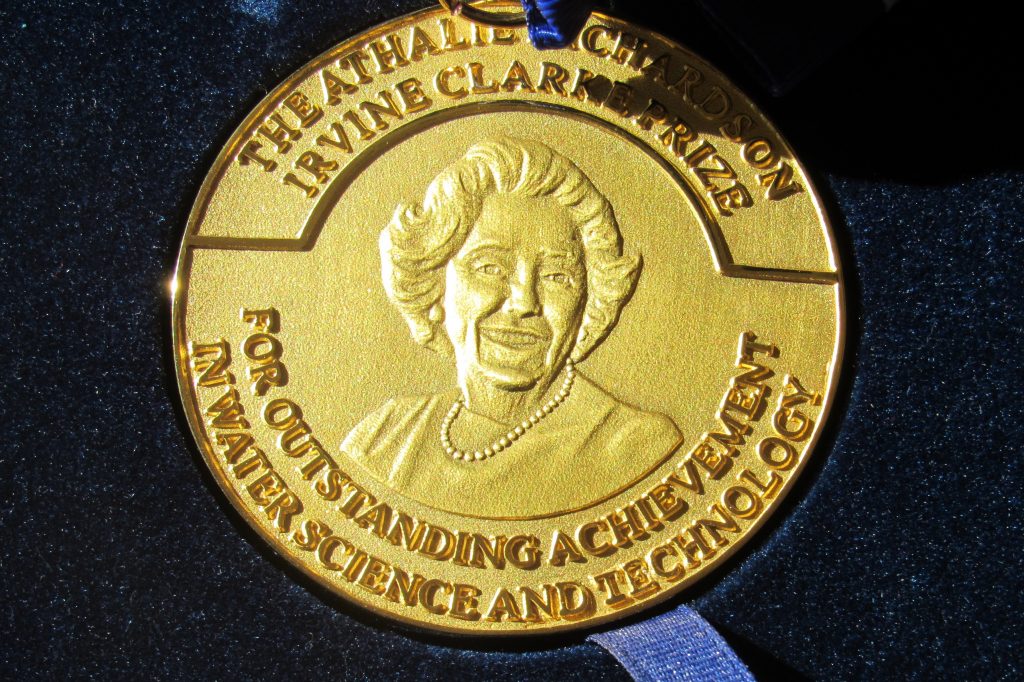SU engineering professor earns national recognition
SU professor earns national recognition
The National Water Research Institute recognized Charles Driscoll as the 30th recipient for the Clark Prize Laureate for his contributions to water science and technology.

In the early hours before a Saratoga Springs hotel holds a continental breakfast for guests, Syracuse University professor Charles Driscoll is already awake in his room. He dedicates this time to rehearsing his research presentation scheduled for the afternoon.
Driscoll earned a doctorate in environmental engineering from Cornell University in 1980 and has continued to develop research he began in Ithaca more than four decades ago. Why then, would he need to rigorously practice his presentation, his then-doctoral student Afshin Pourmokhtarian wondered.
“Practice makes perfect,” Driscoll told Pourmokhtarian, now a construction management professor at the Wentworth Institute of Technology. “The more you do it, the better you’ll do and the more comfortable you’ll feel.”
Pourmokhtarian chose to work in Driscoll’s lab at Syracuse University because of his track record as a pioneer in the field of environmental engineering.
“I was really impressed with his wide range of knowledge. He had an impressive number of publications, which is why I applied to Syracuse,” Pourmokhtarian said, noting that Driscoll also made him a better public speaker — because now he practices presentations.
Driscoll, now 71, is well accomplished in the field of environmental engineering, where his research is recognized worldwide. These same qualities won Driscoll the 2023 Clark Prize Laureate for Outstanding Achievement in Water Science and Technology.
The National Water Research Institute presented Driscoll, joined by his family, with the award on Oct. 21 at the ceremony in Irvine, California. Following the ceremony, Driscoll presented his work during the Clarke Prize Lecture.
The prize is considered one of the most prestigious in the field, according to Driscoll’s colleague, Chris Johnson. Johnson is one of the faculty members who first nominated Driscoll for the award years ago. Johnson and Driscoll have been working together for 34 years.
“There’s no question that his record qualifies him for this award,” Johnson said. “The amount and the consistently high quality of the research he has done is incredible. The impact his research has had on policy, law and practice made him a really strong candidate.”
Currently, Driscoll has authored more than 80 environmental research publications garnering more than 53,000 citations, according to Google Scholar.
In 2018, he was named a fellow of the American Association for the Advancement of Science. He has previously won the Adirondack Achievement Award and the Syracuse University Chancellor’s Lifetime Achievement Award.
Driscoll is known internationally in the civic engineering field, but he got his start in Central New York. He grew up in Marcellus, just a few miles from Skaneateles Lake. Now, he serves on the Skaneateles Lake Association which monitors harmful algal blooms (HABs) and nutrient overloading at 30 different sites along the shoreline.
Driscoll also worked with other local scientists on the restoration of the once heavily polluted Onondaga Lake. He began his work in the early 90s when mercury was identified as an air pollutant. Driscoll and his lab began developing new ways to test for mercury. Since then, Onondaga Lake has made tremendous progress, he says.

Throughout his career, Driscoll has advanced new lab techniques, established and maintained long-term experiments and developed a series of predictive environmental models for a research project called the Hubbard Brook Ecosystem Study in New Hampshire. The 7,800-acre site in the White Mountains examines how northern hardwood forests respond to natural and anthropogenic changes. Driscoll has been a part of the project since 1977.
The models he created for the Hubbard Brooke ecosystem study simulate how chemical elements in water, soil and vegetation change in response to atmospheric changes from air pollution.
Driscoll also researches natural ways for an ecosystem to recover from human-caused damage like acid rain, mercury contamination, urbanization and climate change. Outside of scientific research, Driscoll has testified at congressional and state legislative committee hearings and provided briefings to government agencies.
“Driscoll was rocketed into the environmental arena around the issue of acid rain,” Johnson said. “He is special because over the years he’s been able to expand the scope of what he does and pivot to new and adjacent research which is usually hard for a lot of people.”
“Instead of putting blinders on and focusing on acid rain and aluminum, he expanded into environmental modeling, ecology and how everything is informed by the ecosystem,” Johnson explained further.
Driscoll is the 30th recipient of the Clark Prize. He says he won because he was “in the right place at the right time.” The National Water Research Institute aims to broaden the award to include scientists who research the effects of climate change on water systems, he says.
Driscoll remembers the “bizarre” award notification he received last summer. J. Cole Smith, the dean of the college of engineering and computer science, contacted Driscoll, announcing an emergency in the water resources department. He said they needed to talk immediately.
“I was home, looking like a bum in the summertime. I got on Zoom and there was this woman on the call I knew from Michigan State,” Driscoll said. “Her name is Joan Rose. I said ‘Joan, What’s going on here?’”
Other people joined the call, including Smith, and collectively, the group told Driscoll he won the award. “I was surprised,” Driscoll recalled. “It was very exciting and hard to absorb all at once.”
The award included a gold medal medallion presented to Driscoll at the ceremony. He noted the medal was “quite heavy.”

“It was a beautiful ceremony,” Driscoll said. “It was really sort of overwhelming.”
He’s what his colleagues call a “natural scientist” because of his constant curiosity and his quest for solutions. Now, Driscoll is determined to complete at least five more years of research in the remainder of his career.
“There are three or four more projects I want to put to bed,” he said. “Which looks like five more years.”
He has plans to resurvey lakes he observed in the 1980s, making adjustments to include the latest climate effects. He has three additional projects in the pipeline in the Democratic Republic of the Congo that investigate forest regrowth and nutrient levels. Additionally, he has plans to research new strategies for implementing decarbonization in meaningful ways.
“It’s kind of disappointing that I’m towards the end of my career because I’ve been involved in interesting problems,” he said. “But, there are amazing problems going forward.”
